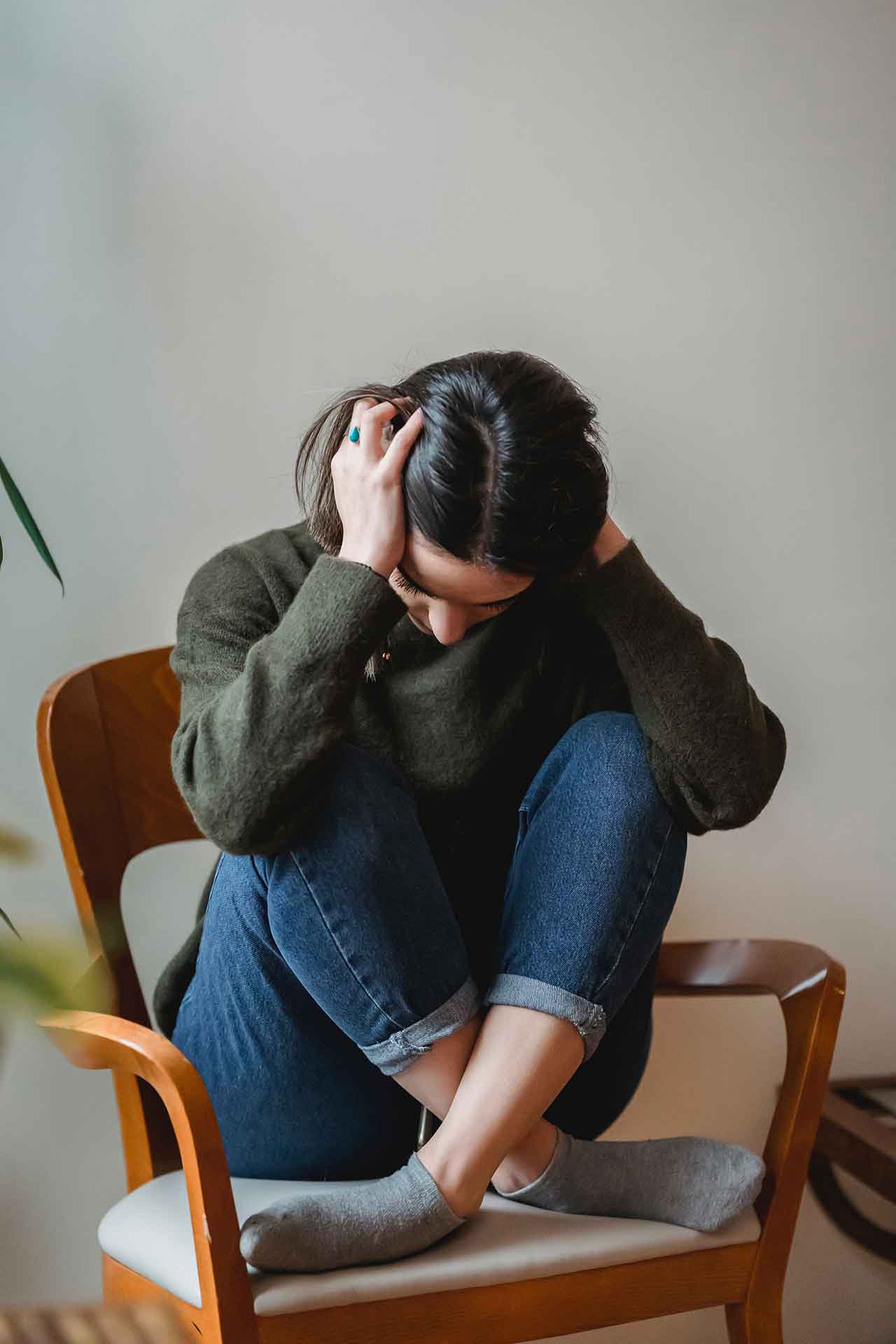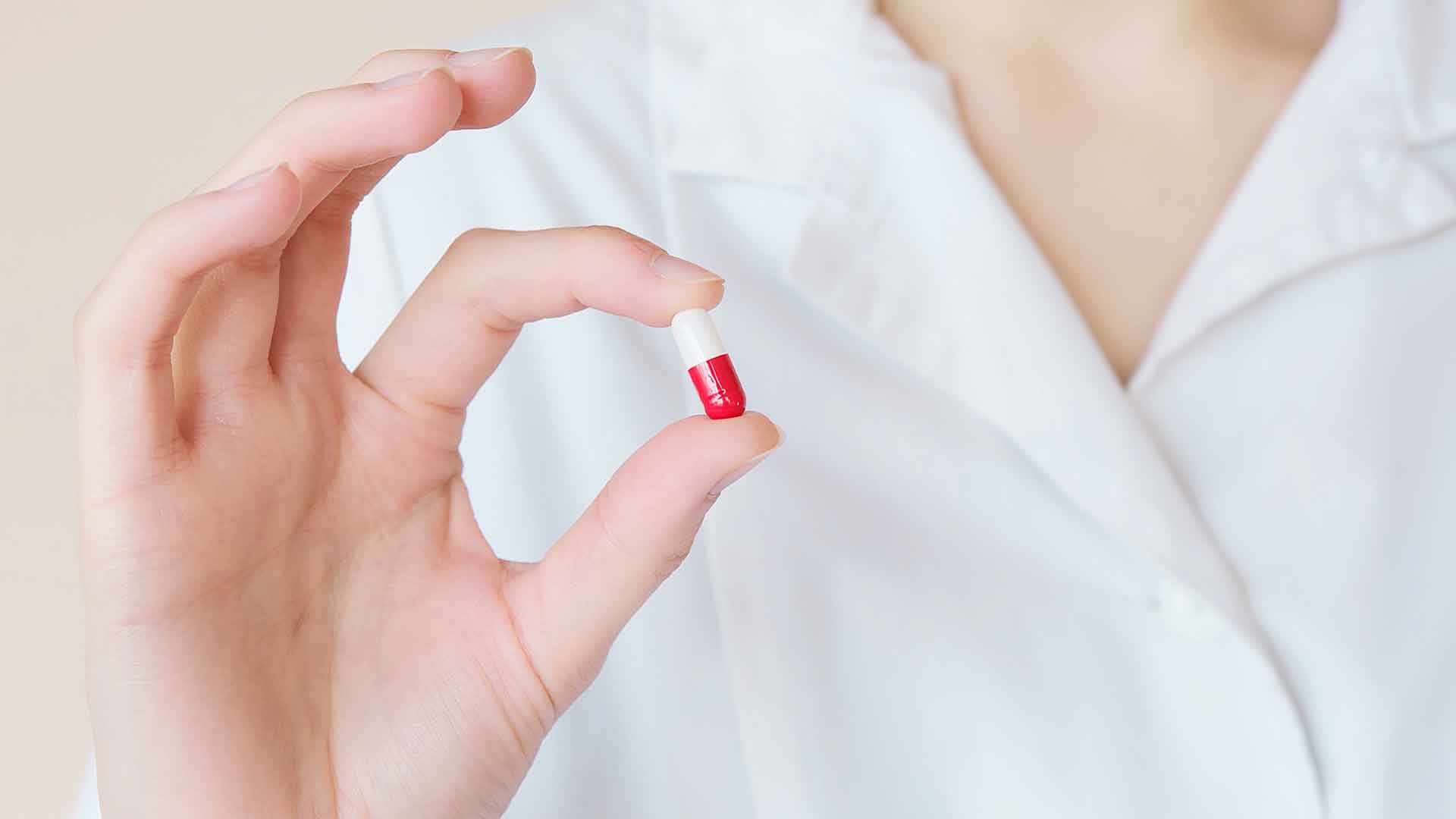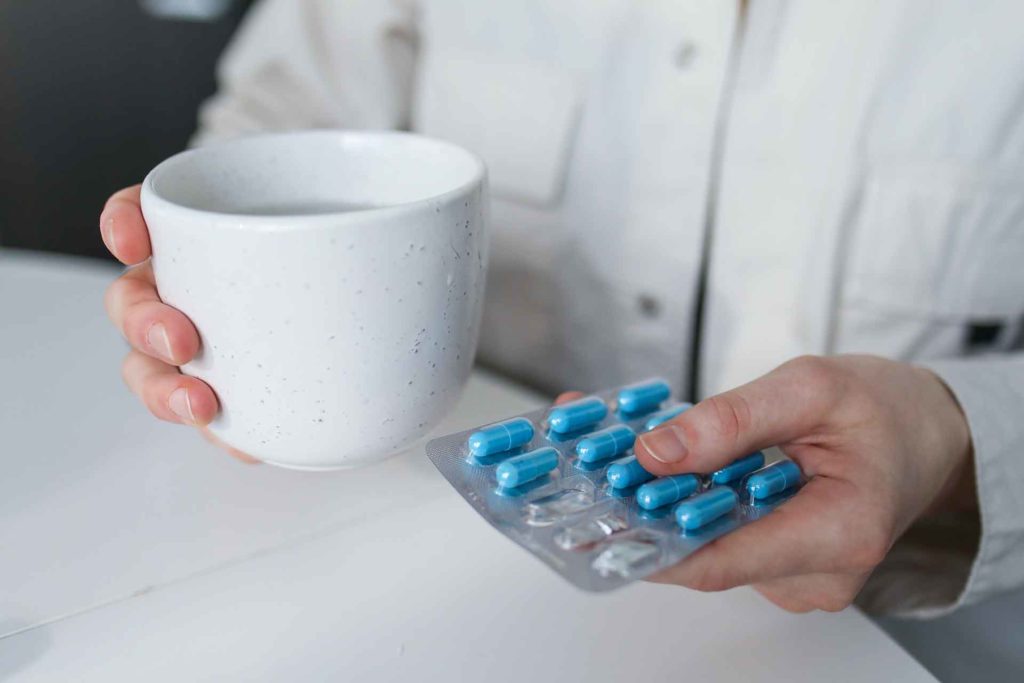Anxiety is an inherent aspect of life. Some people, however, have protracted bouts of anxiety, which can be harmful to their health. If anxiety is not resolved, it can develop into major trouble, such as high-functioning anxiety or an anxiety disorder, which can negatively impact our daily lives.
One must consider treatment options in this situation. Medications are one of the most effective anxiety treatment options, and they play a significant role in anxiety treatment. Anxiety can be treated with various types of medications, most common of which include beta-blockers like propanol, SSRIs like Zoloft, antipsychotics like Seroquel, and others.
Anticonvulsants are another class of drugs that may be used to alleviate anxiety. Anticonvulsants are a diversified class of drugs used to treat epileptic seizures and a variety of other psychiatric problems. Anticonvulsants act as mood stabilizers and treat neuropathic pain. They aid in normalizing nerve impulse transit along with nerve cells, consequently preventing or treating seizures.
Depakote is a kind of anticonvulsant medication that is very effective. It is used to treat various psychological disorders, and it is also believed to help with anxiety.
To see if Depakote for anxiety is a successful treatment, let us dig deeper and learn more about the medicine’s mechanism of action, efficacy, influence on the human brain, side effects, potential drug interactions, and other pertinent facts.
What is Depakote?
Depakote is an FDA-approved prescription medicine to treat several types of seizures, manic episodes associated with bipolar illness, and migraine prevention. (3) Off-label, this medicine is occasionally used to treat various conditions, such as schizophrenia symptoms, anxiety disorders, and depression. (4)
Experts are not clear how Depakote works for anxiety, but they believe it has something to do with elevated gamma-aminobutyric acid concentrations in the brain (GABA). The drug is an anticonvulsant that functions by boosting the amount of GABA in your brain, which relaxes your nervous system and regulates your mood. (5)
How does Depakote work for anxiety?
Depakote’s mechanism of action is not totally known. According to research, it might be driven by a range of mechanisms; two of the most common include increased levels of GABA or inhibiting the communication between epileptic neurons.
GABA is the primary inhibitory neurotransmitter, and it is one of many neurotransmitters that appear to be implicated in the pathogenesis of anxiety, alongside serotonin and noradrenalin. Increased gamma-aminobutyric acid (GABA) concentrations in the brain, an inhibitory neurotransmitter, lowers overstimulation in the brain and relaxes nerve activity, thus helping with anxiety. (6)
Moreover, by inhibiting voltage-gated sodium and calcium ion channels in the brain, it reduces excessive communication between neurons, which is a typical cause of seizures.
The key brain structures engaged in fear circuits provide the foundation for using anticonvulsant medications in the treatment of anxiety disorders. Although several brain areas are thought to be involved, the amygdala and hippocampus are critical. (7) Depakote possibly reduces anxiety symptoms by lowering the excessive output from these neurons.
It works by reducing excessive outbursts from epileptic neurons, which helps to prevent seizures. As a result, Depakote may help to alleviate anxiety symptoms by reducing neuronal activity in fear circuits. (8)
Unlike other pharmacological classes, Anticonvulsants are not frequently classified based on their methods of action or chemical structure; this is because their activities are not fully known at the molecular scale.

Forms of Depakote
The drug Depakote is available in the following forms:
Delayed-release tablets
These tablets feature a unique covering that prevents them from breaking down by stomach acid. After the tablet has passed through your stomach, the drug is released. They are often taken twice or three times daily. There are three strengths of Depakote delayed-release tablets: 125 mg, 250 mg, and 500 mg.
Delayed-release sprinkle capsules.
The pellets in the sprinkle capsules feature a particular delayed-release coating. After the pellets have gone past your stomach, the drug is released. Sprinkle capsules are designed to be consumed whole. Depakote delayed-release sprinkle capsules may be a useful alternative if you have difficulties swallowing tablets. You can crack these capsules and sprinkle their content on your food. They are normally used two or three times a day, and there is just one strength, 125mg, available.
Extended-release tablets
The drug in extended-release tablets is released slowly into your body over 24 hours. They simply have to be taken once a day. Depakote ER is available in dosages of 250mg and 500mg.
Your doctor will assist you in determining which type of Depakote will be most effective in treating your anxiety.
How to use Depakote?
Depakote dose is determined by several factors, including the patient’s age, the medical condition for which Depakote is given, susceptibility to side effects, dehydration, and nutritional status. As a result, a doctor should be consulted before administering the drug. Initially, 250 mg twice daily is the recommended beginning dosage. Doses of up to 1,000 mg per day may be beneficial to certain people.
You must take your dose at the same time every day. If you forget to take your Depakote dosage, take it as soon as you recall, but omit it if it is almost time for your next dose. To make up for missing doses, you should never take extra doses of the drug because this can lead to overdose and symptoms such as altered awareness, fainting, and a slow or irregular pulse.
Do not crush or chew Depakote pills; they must be swallowed whole. To make swallowing simpler, open Depakote sprinkle capsules and sprinkle the drug into a scoop of pudding. Depakote should always be taken with lots of water and kept hydrated throughout the day. If you have stomach problems while taking Depakote, consider taking it with meals or ask your doctor if you may gradually titrate your dosage.

How long does it take for Depakote to work?
Depakote takes a different amount of time to achieve its optimum effects depending on the formulations and dosages. The tablet form of Depakote takes 4 hours to reach that point, whereas Depakote sprinkles take slightly over three hours.
Food can also slow Depakote absorption since food has a stronger effect on the tablets than the sprinkles. It might take some weeks of consistent dose before you notice a long-term influence on your mood and anxiety.
Moreover, the duration of your Depakote treatment will be determined by your diagnosis and individual symptoms. Even if your anxiety is under control, your doctor may continue to prescribe this drug for a long time.
Your doctor will collaborate with you to select the best treatment schedule for your requirements. Most importantly, even if you start to feel better, you should continue taking your medicine until your doctor indicates it is okay to stop.
How does Depakote make you feel?
Depakote is a mood stabilizer that is used when patients have a continuous cycle of mood episodes or anxiety. It works by decreasing the brain’s hyperactivity. (9) After using Depakote, some persons reported greater attention and concentration as well as a reduction in mood swings. It can also aid sleep for some people by calming their minds.
Depakote can have sedating effects on some people, making them feel drowsy; therefore, it is best not to undertake any such activity that requires concentration if you feel this way.
Many people are concerned that Depakote would modify their attitudes or cause them to lose their individuality. It does not alter your personality if you consume it in the appropriate dose. Instead, it will help you reclaim your identity by calming your emotions and temperament. Just make sure to keep taking your medicine as directed, even if you start to feel better, and to see your doctor before stopping.
However, in certain situations, it may produce agitation, irritability, or other odd behaviors in some people. It may also lead to suicidal thoughts and behaviors, as well as a worsening of depression in some people. There might be several reasons for this, so notify your doctor immediately if you encounter any of these side effects.
Other uses of Depakote
Anticonvulsant drugs like Depakote are FDA-approved to treat seizures and a variety of other psychological conditions, while they are used as an off-label treatment for anxiety and some other mental conditions. The following are some of the most popular uses of Depakote:
Epilepsy
Depakote has been FDA-approved to treat epilepsy for a long time and is regarded as the first-line therapy for a variety of seizures. It is mostly used as a monotherapy or supplementary therapy for simple or complex absence seizures, either alone or in combination with other forms of seizures. It can also be used to treat partial seizures. Many patients who use Depakote report that it entirely controls their seizures. (10)
Manic Episodes
Bipolar disorder patients frequently endure bouts of despair mixed with manic episodes in which they feel unnaturally energetic and euphoric. Depakote is an FDA-approved medication for treating bipolar illness, particularly manic episodes. It works by reducing the hyperactivity of the brain during mania in individuals who have fast-cycling mood episodes. (11) It can effectively treat hypomania or mania and prevent the recurrence of bipolar episodes.
Migraine
Depakote, the first anticonvulsant medicine for migraine headaches, was licensed by the FDA as a migraine preventative agent. It is an effective migraine therapy, and some studies show that it may also reduce the frequency and intensity of migraines in children. (12)
Depression
Depakote is occasionally used as an off-label depression therapy. It is beneficial in the treatment of depression caused by bipolar disorder. However, there is some evidence that this drug can assist with general depression as well.
Divalproex reduced symptoms and helped avoid relapse in 14 individuals with depression who had failed to respond to typical antidepressants in a seven-month trial. (13)
Schizophrenia
Depakote is also used off-label to treat schizophrenia symptoms. Some doctors use it in clinical settings to treat schizophrenia symptoms.
When combined with antipsychotics, Depakote may improve the symptoms of schizophrenia, according to a meta-analysis of 11 clinical studies comprising 889 patients. (14)
PTSD
When the patient’s major symptoms are significant anger or irritability, mood stabilizers are most commonly used to treat PTSD. If the patient’s reaction to antidepressants is inadequate, a psychiatrist may prescribe mood stabilizers like Depakote. (16)
Is Depakote addictive?
Although Depakote has no habit-forming potential, it is suggested not to stop taking the medication without first consulting your doctor since withdrawal symptoms might arise.
You may wish to discontinue taking the drug once you notice the favorable results. If you suddenly stop taking Depakote, you may experience significant side effects such as exacerbated anxiety, dizziness, tremors, and worsening bipolar disorder symptoms, all of which may necessitate rapid medical treatment.
Before discontinuing or modifying the usage of the drug, talk to your doctor so they can devise a strategy that allows your body to adjust; this will keep you feeling well and avoid the recurrence of symptoms.

Side effects of Depakote
Abdominal discomfort, nausea, vomiting, diarrhea, constipation, dyspepsia, dizziness, sleepiness, headache, fever, weakness, or weight loss are some of the most prevalent adverse effects of Depakote. It can also cause gum bleeding, bloating or swelling, cough, tremors, hair loss, skin rash, infection, and mental problems.
When Depakote is used at high doses, it can induce liver injury (17) and thrombocytopenia, a drop in platelet counts in the blood. (18)
Long-term Depakote usage has been linked to life-threatening pancreatitis in children and adults; symptoms include stomach discomfort, nausea, vomiting, and weight loss. (19) Moreover, like other anticonvulsants, Depakote might raise the risk of suicidal thoughts or actions, especially in young individuals under 24. Keep an eye out for signs of a deteriorating mood.
Women who are pregnant or planning to become pregnant should take Depakote with caution if they have epilepsy or bipolar illness. Depakote should always be used with contraception, and you should see your physician before trying to conceive because it has been linked to birth problems, notably neural tube disorders like spina bifida.
Depakote-using mothers’ babies may have lower IQ scores than the overall population. Depakote should not be used to prevent migraine headaches in women who are expecting to have children. (20)
Although it is a safe and effective drug when taken as prescribed, it is essential to keep in mind that some of the adverse effects described above may persist or intensify if you continue to use it. It is critical to follow up with your doctor for blood testing and to notify the doctor right away if you discover any symptoms that are not manageable.
Who should not take Depakote?
Despite its effectiveness, Depakote may have substantial adverse effects on some people. Individuals with the following conditions should not use Depakote or should visit a doctor to assess their safety before using it:
- Have a mitochondrial disease that causes a hereditary liver issue
- Have urea cycle disorder, which is a hereditary condition.
- Are intolerant to divalproex sodium, valproic acid, sodium valproate, or any of Depakote’s components
- Are pregnant or may get pregnant because you are not using contraception and are taking it to prevent migraine
Is the interaction of Depakote with other drugs dangerous?
When used with Depakote, medicines that interact with it may reduce its impact, modify how long it functions, cause adverse effects, or have less effect. An interaction between two drugs is not necessarily harmful, and it does not always indicate you should stop taking one of them, but it can happen. In any case, you should consult a doctor to assess its safety, and you should inform the doctor about the medicines you are taking before they administer Depakote to you. (21)
Many drugs have been shown to have strong, moderate, or minor interactions with Depakote. Hepatic enzyme-inducing drugs, aspirin, carbapenem antibiotics, amitriptyline, nortriptyline, warfarin, zidovudine, diazepam, ethosuximide, lamotrigine, and phenytoin are some of them.

Precautions
First and foremost, you should be aware if you have any health conditions that Depakote may exacerbate; second, you should be aware of the potential interactions and if you are taking any drugs that may interact with Depakote. If it gives you a green signal, Depakote is typically safe for you. However, there are a few precautions you should follow, including:
- Do not consume alcohol with Depakote.
- Depakote may cause you to burn more quickly, so avoid too much sun. When you are outside, use sunscreen and wear protective gear.
- Keep an eye out for any changes in your conduct. If you notice any changes, get medical help.
- Before altering your Depakote dosage, always check with your doctor.
- It is a good idea to get your blood, and yourself examined more frequently to see how effective Depakote is on you.
Conclusion
There is a wide range of treatment options and coping skills for anxiety. One of the most effective methods for managing anxiety is to use medication.
Anxiety can be treated with anticonvulsants. Depakote is an anticonvulsant that the FDA has licensed to treat bipolar disorder, epilepsy, and migraines. Off-label use of Depakote is for anxiety.
If you wish to use Depakote for anxiety, you need to talk to your doctor and take certain precautions to get the most out of the prescription and get rid of anxiety while avoiding the drug’s significant negative effects.

